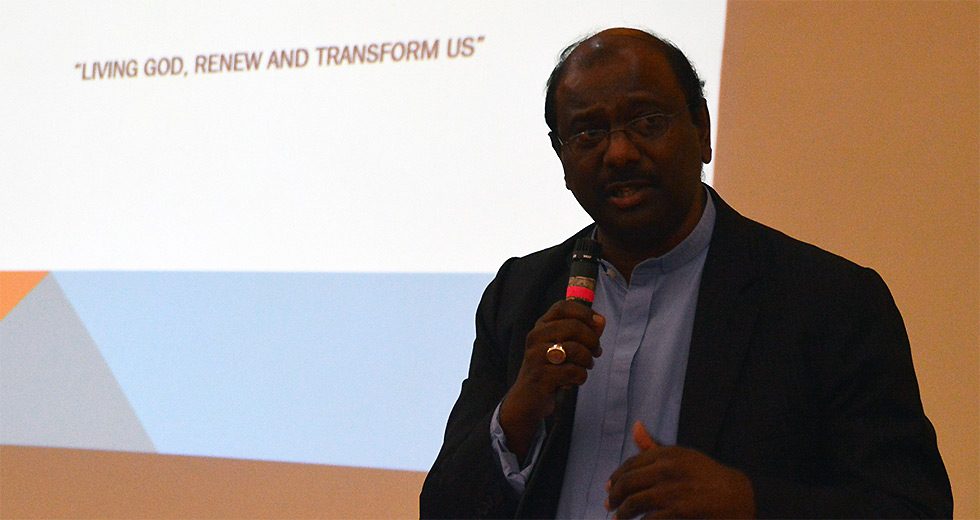Pillay calls for embracing deeper vision
Posted on May 9, 2016 by Phil Tanis

In his annual address to the executive committee of the World Communion of Reformed Churches (WCRC), President Jerry Pillay looked toward the 2017 General Council by engaging the council’s theme “Living God, renew and transform us.”
“This theme is reflected as a prayer to God who lives and reigns in the world to make us more like Jesus,” Pillay said. “It is a prayer that God will make the Church and Christians to be what God wants and wills for us to be, and that God will use us to change the world so that it may reflect God’s reign and presence bringing justice, peace, love and abundance of life to all.”
He asked how this prayer impacts the WCRC and offered three areas in which the WCRC should seek renewal and transformation:
1. Theological
“The critical question is: How do we understand the concept of grace in the light of the new emerging world experiences impinging on the role of women in society, issues of human sexuality, interreligious encounters and tensions, racism, xenophobia, tribalism, the refugee situation, etc.?” Pillay asked. “How do we express grace and hospitality to differing views, theological beliefs and human experiences? All of these impress upon us the need for renewal and transformation as we seek to build inclusive communities and foster better relationships with people of other faiths. These are realities that the WCRC has to deal with, and it is these that will hopefully bring theological renewal and transformation.”
2. Contextual
“Whilst Reformed theology and tradition may have the same substance of faith and belief, it does not mean that it has the exact same impact in different contexts. Hence what is needed as a sign of renewal and transformation is a contextual reading and adaption of Reformed teaching and beliefs,” he said. “Different contextual realities need to inform and shape Reformed theology, faith and practice.”
3. Institutional
“Whilst member churches are still keen to belong to the WCRC, yet they are becoming less involved in the work of the organisation. It’s not because they have lost interest, it’s just that they are becoming more absorbed with their own internal denominational life, struggles and issues,” said Pillay. “I must make it very clear that, in my opinion, ecumenism is not dying but morphing into something new. As we continue to embrace our future, and in the struggle for organic unity, we need to have before us this picture of an emerging ecumenism which calls us to engage the ecumenical discourse.”
Pillay concluded by saying, “We need to embrace a greater and deeper vision of these areas as we continue to pursue our work and witness as an organisation. Our efforts of renewing and transforming the world must start with us if we are to earn respect and remain relevant in addressing the challenges in a changing world.”
The executive committee is meeting in Havana, Cuba, 7-13 May 2016, hosted by the Presbyterian Reformed Church in Cuba.
 World Communion of Reformed Churches
World Communion of Reformed Churches